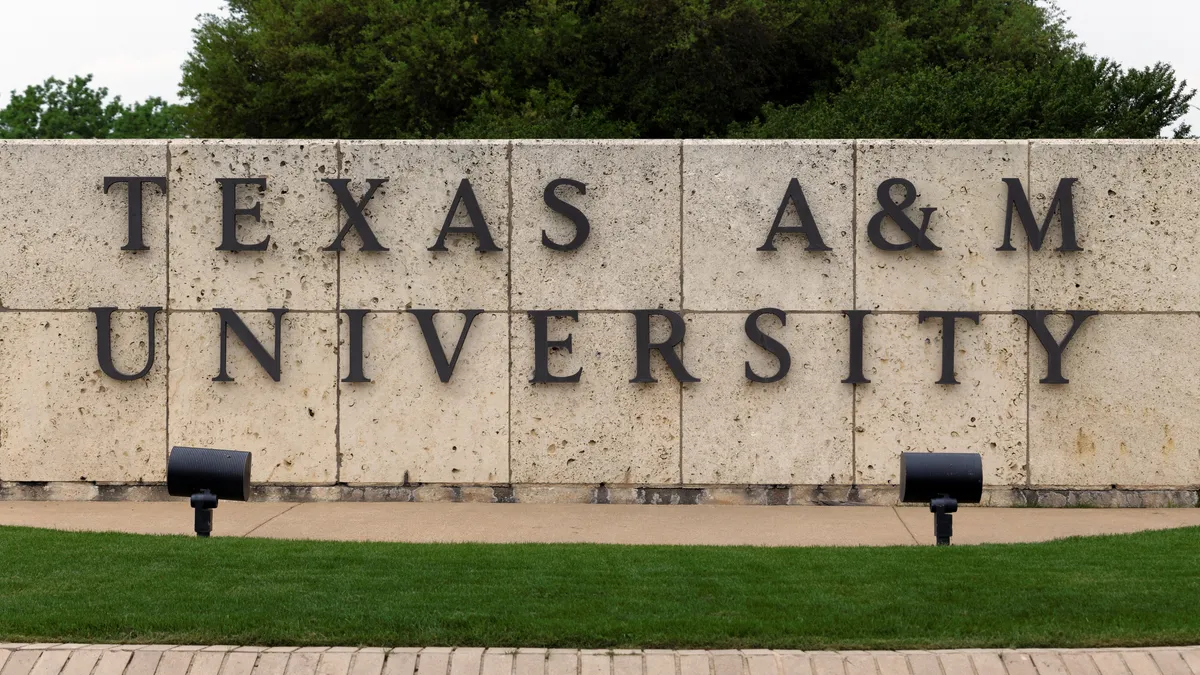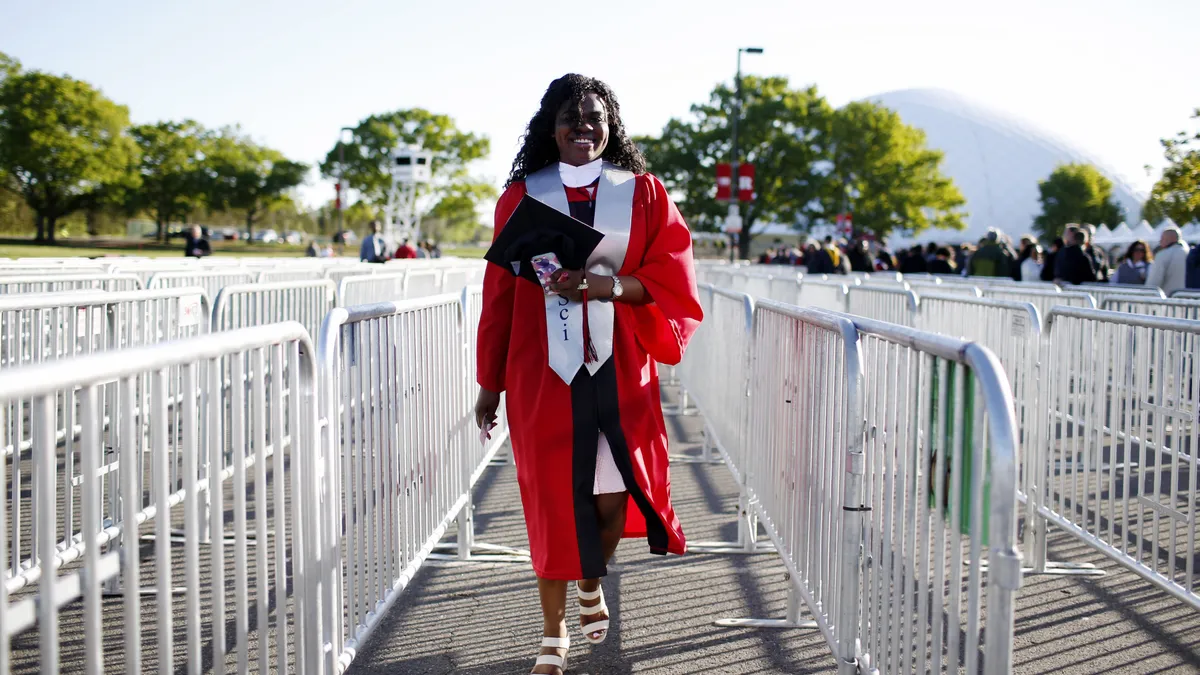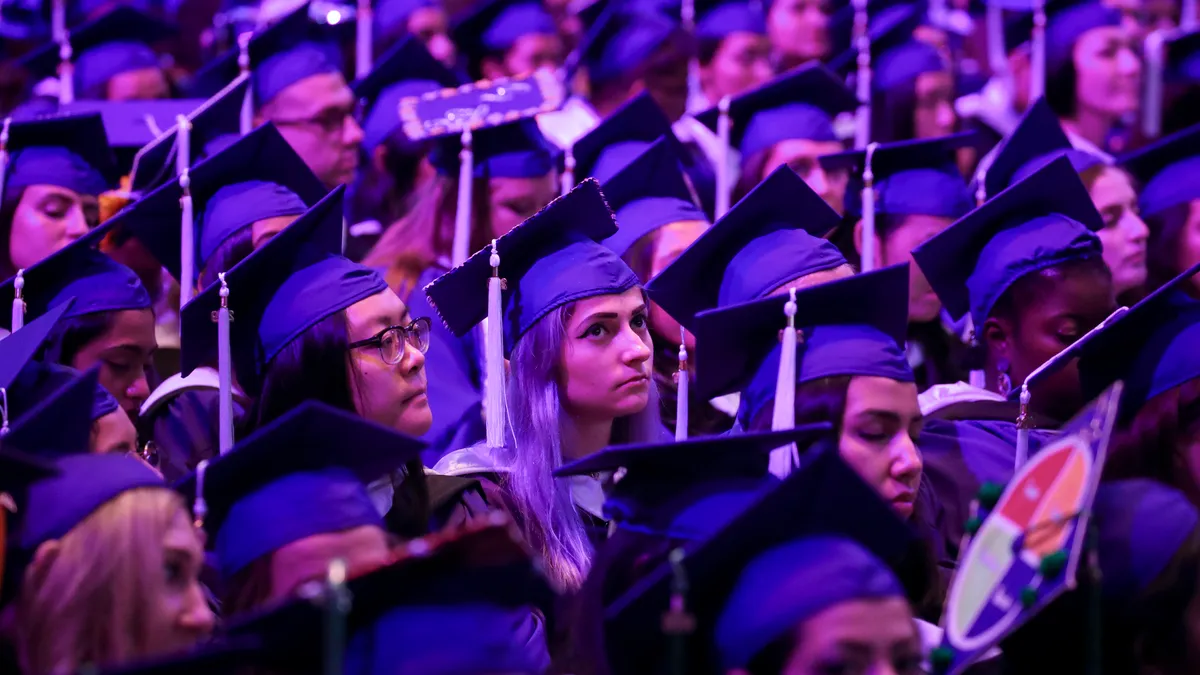When Michael Collins was in graduate school, he met the son of the Texas higher education commissioner at a party. They hit it off and the man asked Collins, who was studying higher education and public affairs, to send him his resume.
Collins was looking for an internship at the time but didn't take the offer seriously.
"I just thought we're at a party. We're drinking," he said. "I was like, 'Oh sure, I'll get it to you,' and I didn't follow up."
It was only when the man followed up that Collins forwarded his CV — and ended up securing a paid internship.
"It launched my career in higher education," he said. "I wasn't actively trying to make connections. But looking back, I see how important it is."
Collins, now a vice president at Jobs for the Future, a nonprofit focused on improving workforce and education systems, attributes his initial inaction to an ignorance about the importance of professional social capital. That lack of wherewithal is still common for Black college students like him, he said.
Social capital — connections between people that help communities function and grow — can be nebulous and ill-defined. But gaining it is crucial for students and graduates trying to navigate the complex, often-unwritten rules governing colleges and the professional world, according to JFF.
Now, the nonprofit has released a social capital framework for colleges looking to support Black students. The guide suggests how to improve institutional policy, from student recruitment to alumni relations. It also heavily emphasizes collaboration between colleges and employers.
Beyond a Degree
Many colleges have acknowledged and worked to improve graduation rate gaps between Black and White learners. Among Black students who started at public four-year colleges in 2016, just over half graduated in six years, according to the National Student Clearinghouse Research Center, compared to nearly three-quarters of their White peers who graduated in that span of time.
But while improving degree attainment is important, it alone isn't enough to set Black students on a path to success, according to Collins, who leads JFF's Center for Racial Economic Equity.
"It's really important that Black learners understand that the workforce isn't just about having skills and competencies," he said. "It is about who knows that you have those skills and competencies."
The framework recommends colleges build and strengthen their career services offices, including by developing relationships with other departments and externally.
Career services should work with academic advisers and regional employers to provide students with professional connections and an understanding of where their skills will be most valuable in the labor market, the guide says.
At the same time, advisers can't just focus on getting students to a degree, Collins said. People on the academic side also need to talk with students about their employment options post graduation. To hear him tell it, he initially graduated with an undergraduate English degree, a lot of books, zero social capital and little idea of how to get a job in his field.
"I didn't have anyone to help me understand the implications of the program of study I was in," Collins said. "The split between academic and career services is a false dichotomy for most people. For most learners, college has to end up in some form of economic remuneration."
Advising and counseling should also be required through college, not just for first-year students, according to the framework.
Colleges should consider using client relationship management software to track student-advisee appointments, the guide says. It can help standardize procedures, trace student performance and avoid lost paperwork if turnover occurs among advising staff.
A Casual Mentorship
Mentorships are also crucial for Black students, according to JFF. And not all mentorships have to be profound, time-consuming relationships in order to provide value.
Connections can be casual — like an acquaintance met at a party. Those people can still connect Black learners to opportunities they would have otherwise missed out on, Collins said.
Given that Black workers, especially Black women, are less likely to find workplace mentors, according to the Harvard Business Review, it's crucial colleges set them up for success prior to graduation.
Looking outside of the classroom, student groups play an important role in social capital, the framework says. Colleges can encourage group leaders to explicitly promote the value of networking and sharing resources among peers.
All of the changes the guide suggests should be done with Black students in mind, Collins said. But he shied away from the idea they should be solely based out of a campus' Black cultural center. The premise of expanding social capital for Black students hinges on introducing them to connections outside of their normal network, he said. Affinity groups and Black centers are important for peer-to-peer connections but are often siloed in their reach.
"We want to make sure that Black learners have access to the full range of the other departments," Collins said. "They shouldn't be separate and apart from the full programming of the institution."






















